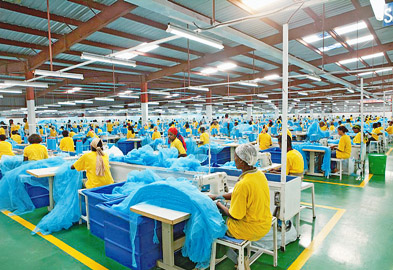

TANZANIA is among African countries set to benefit from a window of opportunity for industrialization as emerging economies move to relocate light industries to lower-cost foreign economies over the long term.
According to Prof Justin Yifu Lin, former Chief Economist and Senior Vice-President of the World Bank, the relocation of industries would help the African countries develop a manufacturing base and boost their economies.
“It is an opportunity for developing countries to set off their industrialisation campaign,” he said at 5th Edition of the Foreign Affairs Speakers Series organised by the Ministry of Foreign Affairs and International Cooperation.
As the saying goes `hoist your sail when the wind is fair,’ the rising cost pressures on China’s light industrial manufacturing sector are seen to push for manufacturing capacity to relocate to lower-cost foreign economies over the long term.
Optimists see if this opportunity is seized by progressively reformist African states, they could well be on the cusp of a 19th-century style industrial revolution - generating jobs and creating new industries. “Poverty is not destiny.
African countries can grow like East Asian countries if their governments facilitate private firms to capture window of opportunity from pending relocation of light industries due to rising wages in China and other emerging economies,” he said.
Prof Lin said while countries in Africa embark on industrialisation campaign, they need to exploit their comparative advantages where industries will focus on sectors and activities matching comparative endowment strength over other countries.
Prof Lin suggested that many low-income countries should focus on labour and resource intensive industries and gradually build up capital, rather than attempting to directly move into capital intensive industries.
He said using this approach, combined with the ‘advantage of backwardness,’ where developing countries can adopt innovation from others rather than having to invest in original research, economies of developing countries would grow significantly for several decades to become middle or high-income countries in one or two generations.
The Chinese scholar suggested also that the failure of previous industrial policies in developing countries were related to attempts to move too quickly into capital intensive industries.
Though growth was initially high, businesses supported were inconsistent with comparative advantage in labour intensive industries, could not compete internationally and were unviable without government protection, he said, adding once domestic resources and external borrowing were exhausted, economic slowdown followed.
He further attributed the failure of past industrialisation policies in countries such as Tanzania to the free market economic ideas that were forced on developing countries by Bretton Wood Institutions, European countries and the US.
The failures of Washington Consensus policies are in part related to over-opposition to government involvement in the economy, he said.
“Governments have a prominent role in facilitating business activities where there is a latent comparative advantage where a country has a comparative advantage in an industry due to its factor endowment structure, but cannot realise this due to high transaction costs,” he said.
This is argued to have been the strategy behind the recent rapid economic growth in East Asia and other countries such as Mauritius, which allowed successful capital build-up and gradual movement into more capital intensive industries, he said.
Article Details
source:http://www.dailynews.co.tz
Published on Tuesday, 21 July 2015 01:29
Written by HENRY LYIMO
Hits: 174